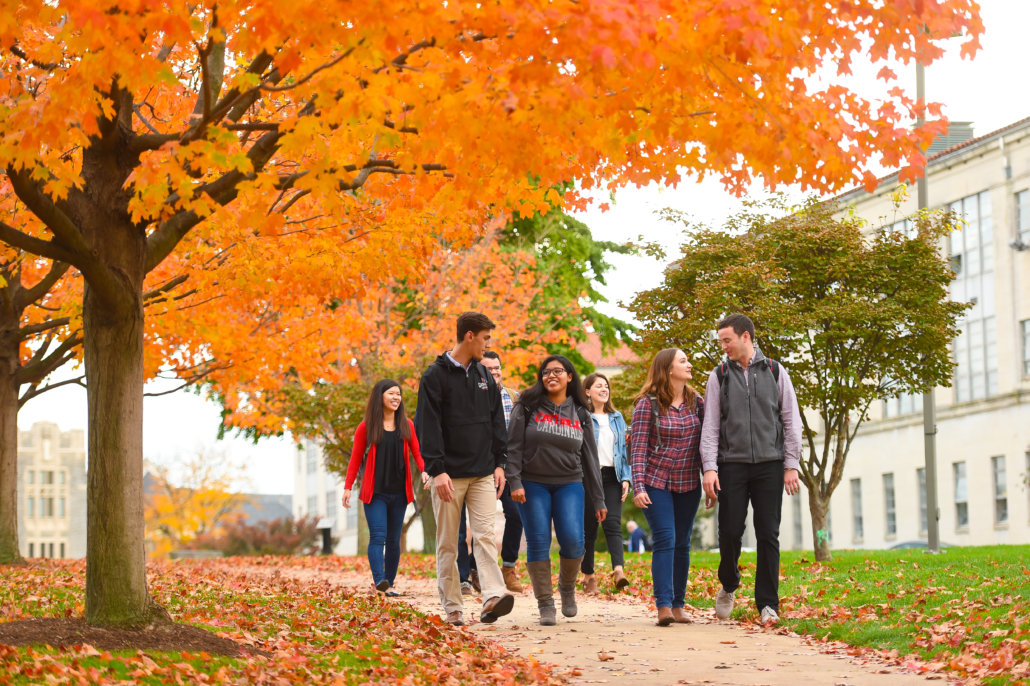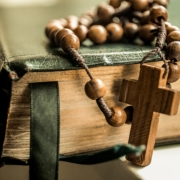Graduate Scholarships Available to Alumni of Newman Guide Colleges
Are you planning to pursue graduate studies? Seniors and alumni of faithful Newman Guide-recommended colleges should know of these scholarship opportunities offered especially for them. And if you are still in high school but have plans someday for graduate school, you might consider a Newman Guide college to take advantage of these great opportunities.
Business Administration
Benedictine College, which is recommended in The Newman Guide, is located in Atchison, Kan. It offers a scholarship averaging $10,000 on a rolling basis to graduates of Newman Guide-recommended colleges entering the Master of Business Administration program online or on-site. More than 45 scholarships have been awarded since 2016.
Among its top 10 reasons for earning an MBA at Benedictine is the college’s “vibrant Catholic community” that is “producing business leaders who will transform the world through their commitment to professional, intellectual, personal and spiritual excellence.” In addition to the campus experience, the MBA is available through a Live Interactive Video Conferencing option that allows students to participate from anywhere in the country.
Jason Fabaz, assistant director of graduate business programs and professional development at the College’s School of Business, says:
Our professors are committed to upholding, in all of their lectures and classroom discussions, the teachings of the Catholic Church in regards to a faithful Catholic view of business, of economics, of justice, of social doctrine, etc. Our Mission of Community, Faith and Scholarship is built on Four Pillars: Catholic, Residential, Benedictine and Liberal Arts. Earning your MBA at Benedictine College gives you the added benefit of living in the midst of a vibrant Catholic community where you will be supported in your studies, professional pursuits, recreation outlets and your spiritual life. It is by means of this community that we are producing business leaders who will transform the world through their commitment to professional, intellectual, personal and spiritual excellence.
Fabaz believes that alumni of Newman Guide colleges are a great fit for the program:
We are happy to offer scholarships for graduates of Newman Guide-recommended colleges for two reasons. First, we want to ease the MBA tuition burden for those Catholic young professionals who have already made the sacrifice in paying for a private school tuition. Second, we want to especially attract young Catholics who are serious about their Faith and about a career in business — and we know that graduates from the Newman Guide-recommended colleges are impressive young people, both in terms of their moral life, their spiritual life and in terms of their potential as future business leaders.
Since Benedictine College is also a Newman Guide college, students from other Newman Guide colleges align closely with our philosophy here. They will fit in well with our emphasis on business ethics, collaboration and leadership based on the faith. Things like our Thompson Center for Integrity in Finance & Economics are a demonstration of how we feel our students should impact the world and students from Newman Guide colleges more than likely share a similar vision.
Human Rights
The Catholic University of America in Washington, D.C., is also recommended in The Newman Guide. Its Institute for Human Ecology recently announced a new Master of Arts in Human Rights. Led by longtime pro-life leader and attorney William Saunders, the program draws on studies in philosophy, theology, law, canon law and the sciences, and will ignite in students a passion to defend human life. The program is available on a full-time or part-time basis.
A new $5,000 scholarship is available for graduates of Newman Guide colleges. The scholarships are awarded on a rolling basis. The deadline is July 15 for the fall semester.
“The Master of Arts program explains and interprets human rights through the lens of Catholic social thought. Students from Newman Guide-recommended colleges will appreciate this approach,” says Saunders.
“A solid education at a college committed to the truth and in step with the Catholic mission to the world would prepare a student perfectly for our program,” Saunders says, “within which we examine the deep truths about the human person and the common good.”
He adds:
In addition to the classes, which will be taught by professors committed to Catholic social thought, as exemplified by the teaching of John Paul II, we will have weekly meetings to explore the relevance of Catholic social thought to what is being learned in the classroom. We will also have frequent speakers from D.C., most of whom will be Catholics, to discuss their work and their faith. In addition, Catholic University is fully committed to the Church’s mission and intellectual apostolate and is itself a Newman Guide-recommended college.
Robert George, the McCormick Professor of Jurisprudence at Princeton University, has praised the program:
I think this [program] will really bring something new to the table. That is an understanding of human rights rooted in the deep tradition of thought that takes us back to Athens and to Jerusalem, an approach to human rights that really anchors human rights in the truth about the human person and the flourishing of the human person. … We need that kind of deep understanding.
Law
Ave Maria School of Law in Naples, Fla., is imbued with an “educational philosophy that emphasizes the moral foundations of the law, presents insights from the Catholic intellectual tradition and encourages a broader perspective of the law and its role in society.” Students learn to practice law in any jurisdiction or employment area.
According to Claire O’Keefe, Esq., associate dean of admissions:
Our goal for law students is to create an educational philosophy that emphasizes the moral foundations of the law, presents insights from the Catholic intellectual tradition and encourages a broader perspective of Florida law and its primary role in society. Ave Maria Law encompasses a carefully curated curriculum designed to ensure our graduates will be well prepared to practice law in any jurisdiction and legal institution. Ave Maria School of Law students come to embrace the law as a vocation. They understand that the law, morality and the common good are inextricably linked, and they leave their studies with a true understanding of the harmony of faith and reason.
The law school offers a “Cardinal Newman Full Tuition Scholarship” with a one-time “Cardinal Newman Stipend” of up to $10,000 toward living expenses for the first year of the program. Students from other Catholic undergraduate programs are eligible for the scholarship and stipend in addition to Newman Guide college alumni, and the awards are available to more than one student per year. Thirteen students received the scholarship in 2020, 12 in 2019 and in 2018, 15 in 2017 and six in 2016. The application deadline is April 15 for the summer start program and July 15 for the fall semester.
O’Keefe says the School is eager for applicants from Newman Guide colleges:
As Ave Maria School of Law seeks to admit men and women who are drawn to our distinctive mission of educating lawyers within the Catholic intellectual tradition, we welcome applications from alumni of these institutions and members of these organizations. We are confident that these students will enrich the academic and spiritual life of the Law School.
The fact that all Newman Society-approved colleges are committed to a faithful Catholic education. While the approach differs from college to college, it is the constant presence of an authentic Catholic life and strong curriculum that makes these students a perfect fit for our school.
Psychology
Divine Mercy University in Sterling, Va., offers online and on-site advanced degree programs that integrate “both the science and practice of psychology and counseling with the Catholic-Christian vision of the person.” The university’s “Newman Scholarship” provides up to $5,000 in financial aid toward obtaining a Master of Science degree in psychology or counseling, or a Doctor of Psychology degree in clinical psychology. This scholarship is for students enrolling in a new program of study who graduated from a college recommended in The Newman Guide.
DMU offers the Newman Scholarship in light of the excellent preparation students receive from Newman Guide colleges. “We have found that, in part due to their strong personal formation as undergraduates, students from Newman colleges tend to excel in our programs,” says Tambi Spitz Kilhefner, associate vice president of admissions at Divine Mercy University.
The university has three program start dates every year, which differ according to program (e.g., the Psy.D. program has only one start each year, in August). Each start offers opportunities to apply for the Newman Scholarship. For additional information and details on qualifications and program deadlines, please see this link.
Regarding Newman Guide colleges, Kilhefner says:
At Divine Mercy University, we provide a profoundly unique home for scholarship and professional training in psychology and counseling grounded in an integral Catholic-Christian view of the human person. Students who have excelled in a Newman Guide college program are well prepared to enter into our programs here at DMU
Kilhefner referenced the testimony of Jody G., a student in the M.S. in Counseling program at Divine Mercy University, who said: “I am forever grateful for my formation received at Thomas Aquinas College, a faithful Catholic college which has more than adequately prepared me for the counseling program with DMU. My courses in philosophy and theology, in particular, have prepared me to tackle the complex material that we are studying in the integrated program and take my personal and professional preparation to a deeper level.”


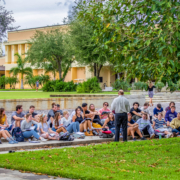





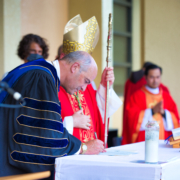
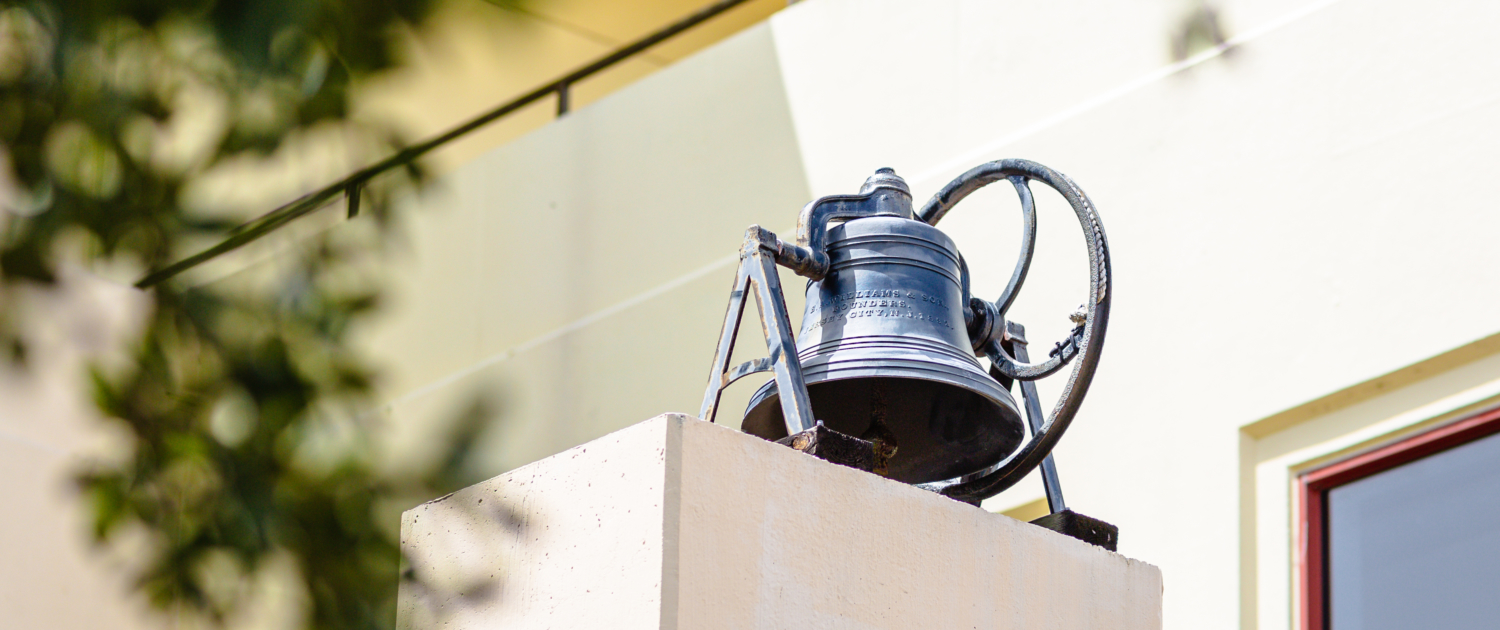
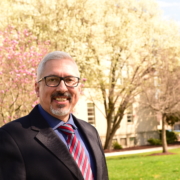
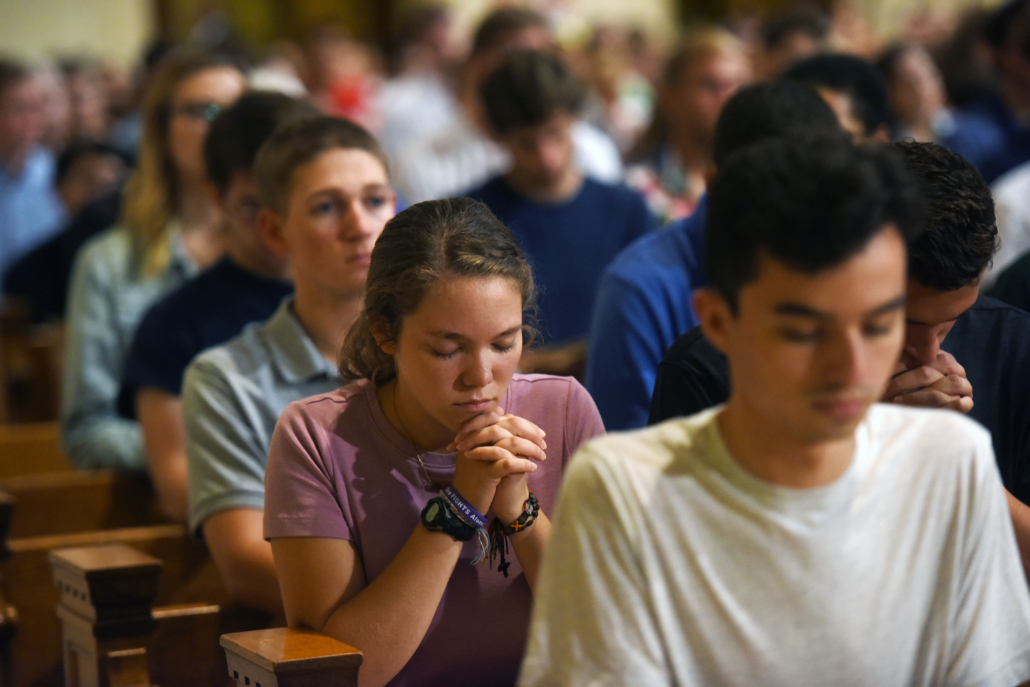
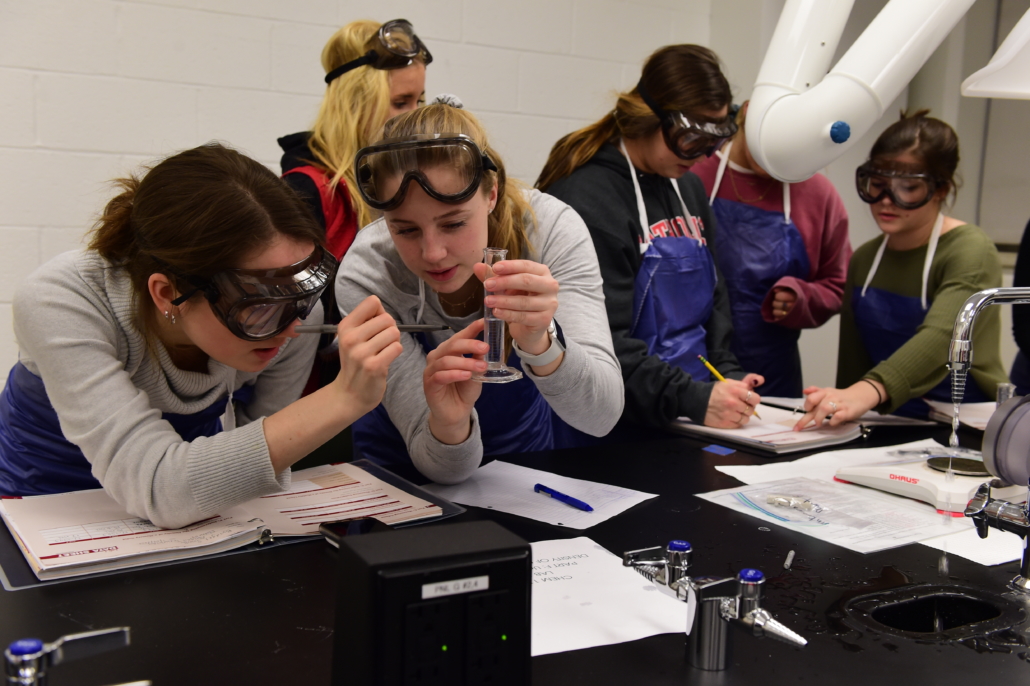 Newman Society: Catholic University was founded as a graduate school and stands out among the Newman Guide colleges for its extensive master’s and doctoral programs. How does this commitment to graduate programs impact the experience of undergraduate students? And what makes Catholic University a good choice for graduates of other Newman Guide colleges, if they pursue graduate studies?
Newman Society: Catholic University was founded as a graduate school and stands out among the Newman Guide colleges for its extensive master’s and doctoral programs. How does this commitment to graduate programs impact the experience of undergraduate students? And what makes Catholic University a good choice for graduates of other Newman Guide colleges, if they pursue graduate studies?